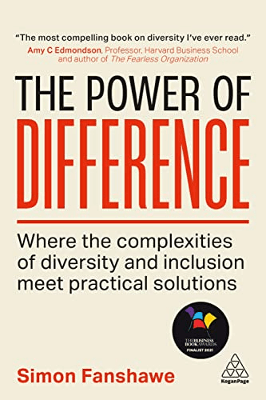Ajay Banga, who served as executive chairman of Mastercard from 2008 to 2021, is one of few people of colour to run a Fortune 500 company. Today the financial services giant boasts genuinely impressive diversity and inclusion numbers. The company was ranked number five on DiversityInc’s Top 50 Companies for Diversity in 2021.
More from CMI

Former CEO Ajay Banga pioneered Mastercard’s strategy to reach the underbanked
But it’s the company’s belief that diversity and inclusion would benefit the bottom line that caught the attention of Simon Fanshawe in his book The Power of Difference: Where the Complexities of Diversity and Inclusion Meet Practical Solutions, which is shortlisted for the 2022 CMI Management Book of the Year. As Fanshawe, himself a founder of LGBTQ+ charity Stonewall, puts it: “Mastercard is able with some confidence to state its diversity commitment in terms of a key business objective.”
Here’s how Fanshawe describes Banga’s strategy:
“His starting point was the two billion people in the world who are excluded from banking,” says Fanshawe. “These two billion people are not just in the emerging markets. There are an estimated 25 to 40 million people who are ‘underbanked’ in the United States and 70 million or so in Europe. He describes reaching these people as core business. It’s not philanthropy. They are mainly lower-income people, but by engaging them now, they can become a significant group of future customers. That connects them to Mastercard’s core business for the years to come.”

*Figure taken from The Power of Difference, by Simon Fanshawe.
Born of personal experience
When Banga came to the United States in his 30s, “he couldn’t hire a car or get a phone because he didn’t have a credit history,” says Fanshawe. “Reaching these people draws them into the circle of Mastercard’s business.” Mastercard has reached 380 million of those two billion – 19 per cent*.
Many “unbanked” or “underbanked” people around the world are of low and middle income and small and micro entrepreneurs. As Banga put it in his 2020 Ted Talk: “I make a small loss on them, but changing the way they interact with the money they get, the money they spend, their pensions etc, that changes the way cash operates in an economy. And that’s extremely beneficial to our company.
“We can do well and do good at the same time.”
